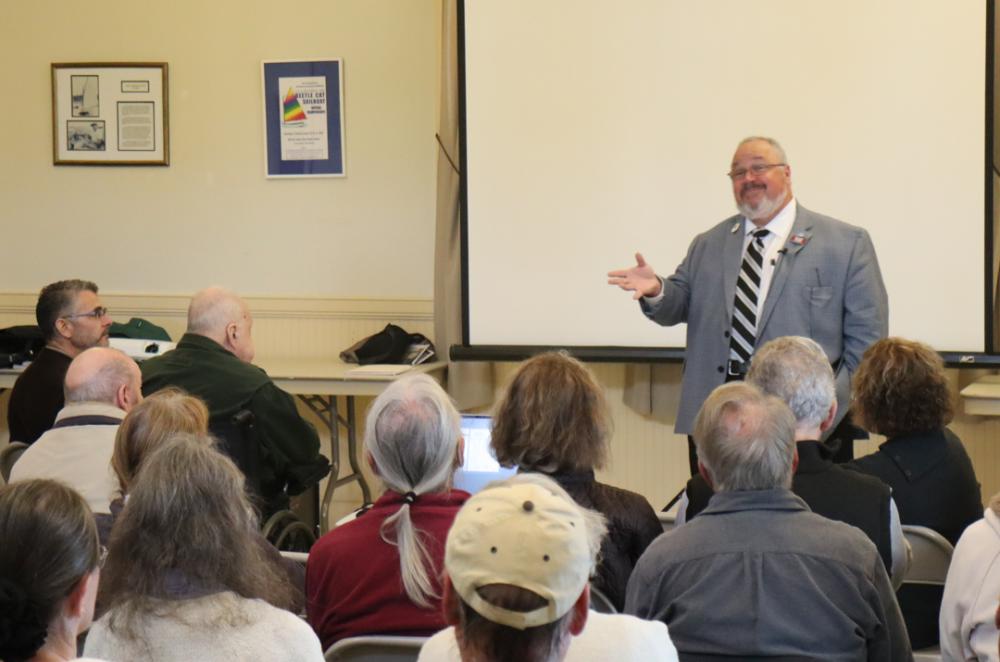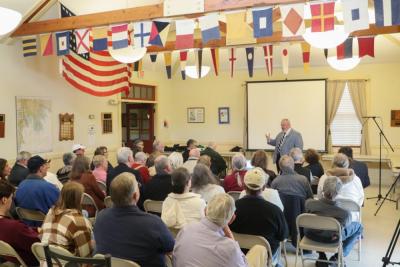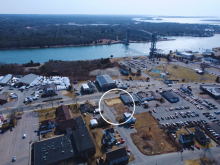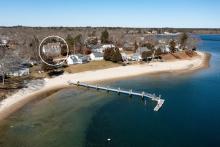The story of the British raid on New Bedford comes to Dartmouth Heritage Preservation Trust’s annual meeting
As an addendum to its annual meeting, the Dartmouth Heritage Preservation Trust helped tell the story of the British raid on New Bedford — and how the raiding parties caused nearly $9 million in damage to the entire region, including Dartmouth.
That story was told by Johnathan Lane, Executive Director of Revolution 250, a collection of organizations that are interested in the American Revolution’s 250th anniversary and commemorations celebrating that birthday. The Heritage Preservation Trust is a member of Revolution 250.
Lane’s talk took place at the Fort Taber-Fort Rodman Military Museum, and in partnership with the Fort Taber-Fort Rodman Historical Association, on Oct. 15.
The Preservation Trust decided to host the presentation at the military museum because the group was “hearing about several battles and raids associated with this area,” said Diane Gilbert, president of the Dartmouth Heritage Preservation Trust.
“It’s really our most living history because of the close proximity to Clarks Cove and Clarks Point,” Gilbert said. “It seems like a perfect pairing to hold our annual meeting and Johnathan’s presentation in a location where it all happened.”
Dartmouth Heritage Preservation Trust manages the Akin House, a colonial-era home owned by Elihu Akin, a prominent supporter of the American Revolution, and his descendants.
The Akin home was prominently discussed in Lane’s presentation, as the British set fire to Akin’s shipyard, destroying his business opportunities. Elihu sought refuge at the Akin house: “That’s why it’s a witness site to the revolution,” Gilbert said.
Gilbert said the house wasn’t destroyed because the British would not have cared about a farm house, but the stores and shipyard were raided.
“Diane [Gilbert] speaks so eloquently about the preservation work they’ve done on the Akin House and the importance of doing that kind of work for communities that have these witness structures that speak to the history of 250 years ago,” Lane said.
Lane explained that the British retaliated against communities on the coast, as supplies were brought through the region despite a blockade in Boston.
“The Acushnet River Valley, which included Dartmouth, is really one of the great bread baskets of Massachusetts,” Lane said. “You can’t imagine the cause of the American Independence being successful except for the support of the communities of Dartmouth and … all the places in this area that provided not just grains but animals.”
The British Raid on New Bedford occurred on September 5-6, 1778, and was commanded by Major General Charles Grey.
“One of the things I have come to appreciate more and more in my work, the key role that Massachusetts in general, and this region in particular, took in standing up for, identifying and preserving American rights and liberties,” Lane said.













